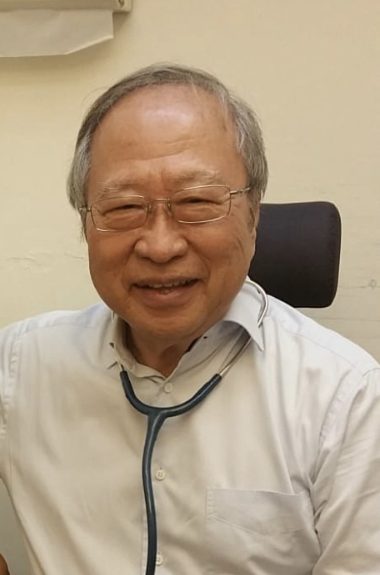Singapore — The fifth instalment of the Tan Cheng Bock Podcast was released ahead of schedule on Monday (Nov 23) to fall on the last day for the submission of applications for appointment as Nominated Members of Parliament (NMPs).
Dr Tan, the Secretary-General of the Progress Singapore Party (PSP), used the podcast to discuss at length the NMP scheme, saying it does not fit with building public accountability in a parliamentary system.
“There is no challenge, no risk-taking. I think that is not the right way to enter Parliament,” he said.
Dr Tan said the scheme was started in the 1980s due to “a fear in Parliament that there would be no opposition in the House”.
When he was first elected as an MP in 1980, there was no opposition in Parliament. Everyone was a member of the People’s Action Party. There was concern raised that views would come from only one sector and the intent to address this was “quite good”, he said. This would “get people from outside to get into the House so they can speak“ for others.
However, the issue regarding the NMP scheme is one of responsibility, according to Dr Tan, as NMPs have no constituents to hold them accountable.
“When you go to Parliament to speak, you speak with conviction, representing a sector of the population who voted for you… If you don’t have that responsibility… you’ve got no mandate.”
The number of NMPs grew over the years since the number of opposition MPs did not grow so quickly. There were originally 3 NMPs, then 6, and then 9, to increase the number of sectors to be represented in Parliament.
Dr Tan had warned against such sectarian representation because “they will go to the House and talk about their hobby-horse subjects. Not about the problems (relating to) HDB flats, or the current climate of problems in Singapore”.
Doctors, he said, would talk only about medical matters, and lawyers about legal matters.
“There are other people who only talk about arts. This is not right. An MP, when you go into the House, must be able to talk about a wide range of subjects. They should not be given the opportunity to use Parliament to speak on their hobby-horse subject.”
Another concern the PSP chief raised is that NMPs have never gone through the process of contesting in an election, which means they “would never understand the needs of the electorate”.
This means they are not risk-takers, at a time when the Government has called for Singaporeans to be risk-takers. They come into the highest law-making body in the country without any worries or risks, he added.
“I think this sends the wrong signal to Singaporeans. You ask me to be a risk-taker and then you take in these people who don’t take risks.”
Dr Tan called also the issue of accountability a “very important” one.
“The (factor of) accountability is very important… Once in the House, you won’t be punished. You have this parliamentary immunity… We go to Parliament… to make sure there’s no racial discontent, no religious quarrel… We take so much trouble to get all this in order, and here, you open the door to the possibility of such views being aired by Nominated MPs.”
However, he admitted that there have been NMPs in the past who have deserved credit, such as Professor Walter Woon, who pushed a Private Member’s Bill. This later became the Maintenance of Parents Act, enabling parents to claim maintenance from their children who can afford to support them but who do not do so.
Dr Tan added: “But of course, one or two good ones don’t make the whole scheme a success… Generally, if we want a parliamentary system to be accountable to the people, I think the NMP scheme doesn’t fit into it.”
The PSP chief said that he would repeal the scheme since there was no way of tightening the processes around it. The criteria for membership, which was originally reserved for non-partisan individuals, became more lax, with PAP members becoming accepted as NMPs.
Dr Tan brought up the fact that while there are already MPs from the labour movement, there is still yet another NMP from the same movement.
“What is his role? Are you telling me that those sitting MPs are unable to articulate the views of the union, and you need somebody nominated by the union to speak for them? I just cannot reconcile (with it),” he said. /TISG
Read also: Dr Tan Cheng Bock calls for an independent review of Parti Liyani’s case
Dr Tan Cheng Bock calls for an independent review of Parti Liyani’s case

